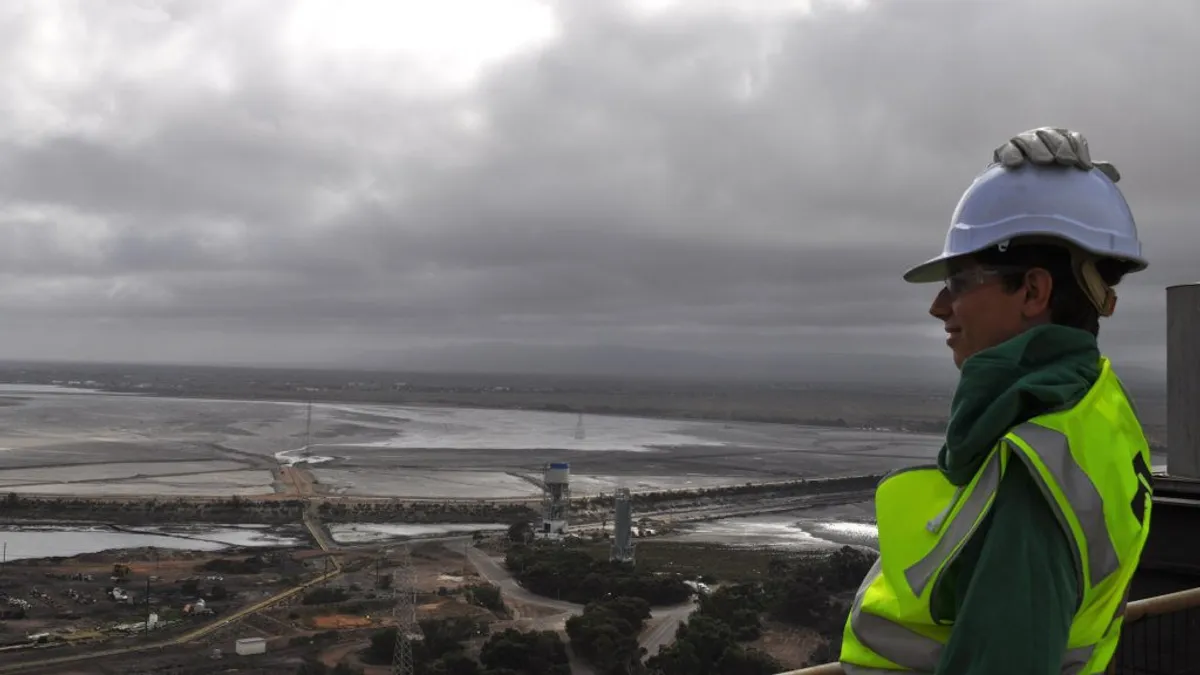UPDATED: July 31, 2019: Illinois Gov. J.B. Pritzker, D, signed Senate Bill 9 into law on Tuesday.
Dive Brief:
-
The Illinois legislature on Monday passed a bill that directs the state's Environmental Protection Agency (EPA) to establish rules on a case-by-case basis for coal ash sites in the state.
-
Utilities, in their filings to the Illinois EPA as the agency determines the best path for each site, are required to compare possible closure methods to full excavation, and prove that alternative options, such as cap-in-place, are as protective of groundwater and public health as full removal.
- Senate Bill 9 directs the state's EPA to take into consideration "high risk" areas, or sites closer to waterways, as well as environmental justice communities when developing its rules. The agency has eight months to submit those rules to the state's Air Pollution Control Board for final approval.
Dive Insight:
Utility filings from across the country found that over 90% of coal plant sites have unsafe levels of one or more toxic coal ash pollutant, according to a March report from the Environmental Integrity Project and Earthjustice. As pollution levels become more of a concern, and the federal EPA takes steps to roll back rules regulating ash ponds, states are beginning to take action.
Illinois has more coal ash impoundments than any other state, at least 80, Colleen Smith, legislative director for the Illinois Environmental Council told Utility Dive. Of the 24 impoundments that were required to disclose groundwater monitoring filings under the federal coal combustion residuals (CCR) rule, 22 reported groundwater contamination, she said.
The most prominent example of pollution in the state is at the now-shuttered Vermilion power plant, operated by Vistra Energy, where pollution reached such high levels the Illinois EPA had to refer the case to the state's attorney general.
"You can see where the riverbank changes colors because of all of the toxic heavy metals," said Smith. "We know that there's just as many heavy metals leaching into our groundwater as well, but Vermilion is a very visible example of how bad this problem is."
Both Virginia and North Carolina recently directed their monopoly utilities, Dominion Energy and Duke Energy, to entirely excavate all their coal ash ponds.
But unlike those states, which have a vertically integrated energy market, so their utilities are able pass costs on to ratepayers, power companies in Illinois have to absorb those costs themselves.
So while Vistra and NRG, coal plant operators in the state, "were not opposed to the premise of needing to close some of these pits" because they'd likely have to close them anyway under the federal CCR rules, they were opposed to a provision in the bill that required them to provide financial assurance to ensure communities wouldn't pay for cleanup, said Smith.
That provision remained in the bill and the legislation specifically prevents those power providers from using collateral bonds or insurance as financial assurance that utilities will have the funds to close the facilities, because those have been associated with high level of risk in the state.
"There was a case in Illinois where a landfill had an insurance policy and [the owners] litigated for seven years over that and still didn't get that claim," she said. "We didn't feel like that should be in the realm of possibility because that's seven years that you're not doing this cleanup."
Vistra Energy declined to comment on the bill's passage.















